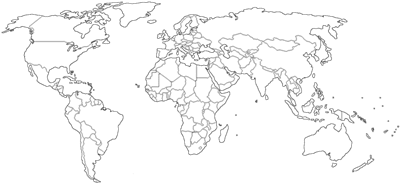|
Summary:
Avis de Manifestation d'Intérêt pour la sélection d'un cabinet pour l'élaboration du cadre de mise en place et de gouvernance d'un marché carbone pour la mise en œuvre de l'article 6 de l'Accord de Paris sur le Climat / Notice of Expression of Interest for the selection of a firm for the development of the framework of establishment and governance of a carbon market for the implementation of article 6 of the Paris Climate Agreement Country:
Mali Estimated Cost:
USD 150000000 Notice Type:
Tender Notice Deadline:
20 May 2024 Posting Date:
06 May 2024 |
|
Summary:
Dao-024/Faoml/2024-Supply Of Bag Garden Kits Open New Window Country:
Mali
Notice Type:
Tender Notice Deadline:
10 May 2024 Posting Date:
04 May 2024 |
|
Summary:
RECRUITMENT OF A FIRM/STUDY OFFICE TO CARRY OUT THE SITUATIONAL ANALYSIS ON DISABILITY IN MALI AS PART OF THE UNPRPD PROJECT Country:
Mali
Notice Type:
Tender Notice Deadline:
16 May 2024 Posting Date:
04 May 2024 |
|
Summary:
Supply Of Smartphones Country:
Mali
Notice Type:
Tender Notice Deadline:
23 May 2024 Posting Date:
03 May 2024 |
|
Summary:
Purchase Of Various Equipment For The Viability Study Of Subsidiaries On Project P Open New Window Country:
Mali
Notice Type:
Tender Notice Deadline:
20 May 2024 Posting Date:
03 May 2024 |
|
Summary:
Dao-023-Faoml-2024 Fish Processing Kits Open New Window Country:
Mali
Notice Type:
Tender Notice Deadline:
10 May 2024 Posting Date:
03 May 2024 |
|
Summary:
Support For The Implementation Of Biosecurity Project Activities Country:
Mali
Notice Type:
Tender Notice Deadline:
15 May 2024 Posting Date:
02 May 2024 |
|
Summary:
Mid-Term Evaluation Of The Project Country:
Mali
Notice Type:
Tender Notice Deadline:
13 May 2024 Posting Date:
02 May 2024 |
|
Summary:
ÉLABORATION ET MISE EN ŒUVRE DU SYSTÈME MRV INTÉGRÉ DE LA CONTRIBUTION DÉTERMINÉE AU NATIONAL (CDN) DU MALI / DEVELOPMENT AND IMPLEMENTATION OF THE INTEGRATED MRV SYSTEM OF THE NATIONALLY DETERMINED CONTRIBUTION (CDN) OF MALI Country:
Mali Estimated Cost:
USD 150000000 Notice Type:
Tender Notice Deadline:
17 May 2024 Posting Date:
03 May 2024 |
|
Summary:
CARRY OUT STUDY ON THE USE OF ICT AND POSTS BY HOUSEHOLDS AND INDIVIDUALS Country:
Mali
Notice Type:
Tender Notice Deadline:
29 May 2024 Posting Date:
02 May 2024 |

Most trusted source for Tendering Opportunities and Business Intelligence since 2002